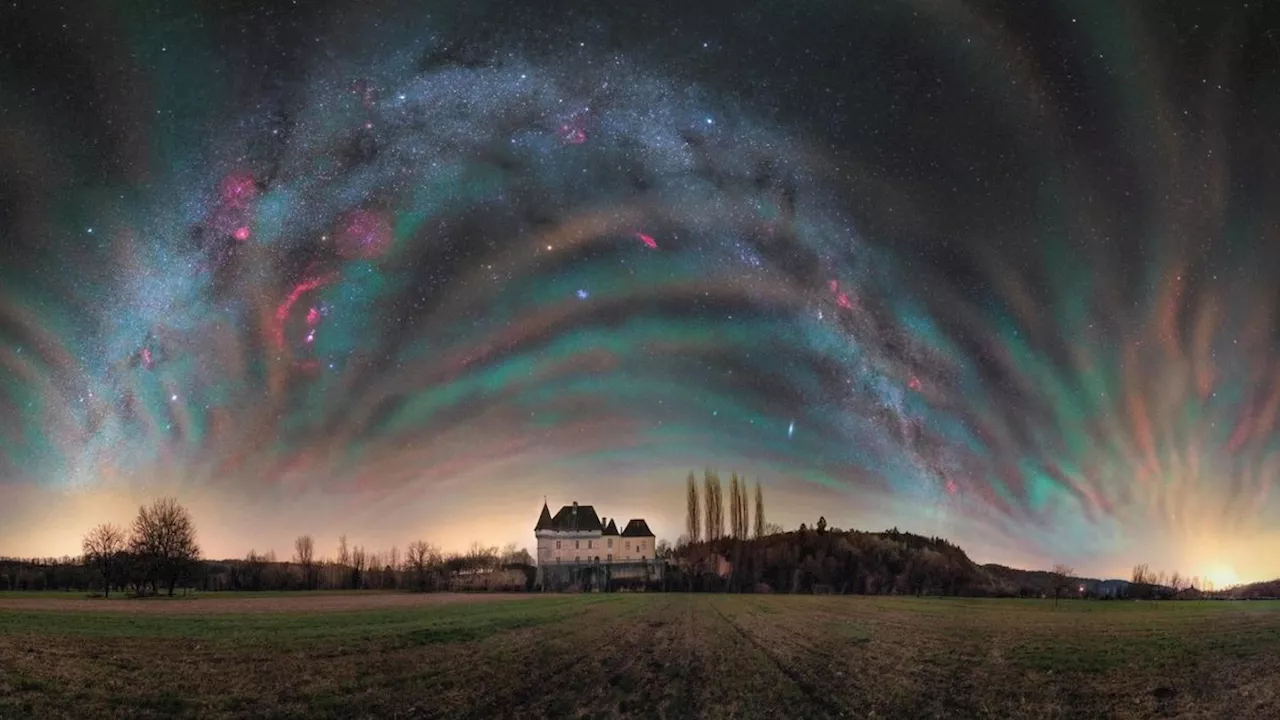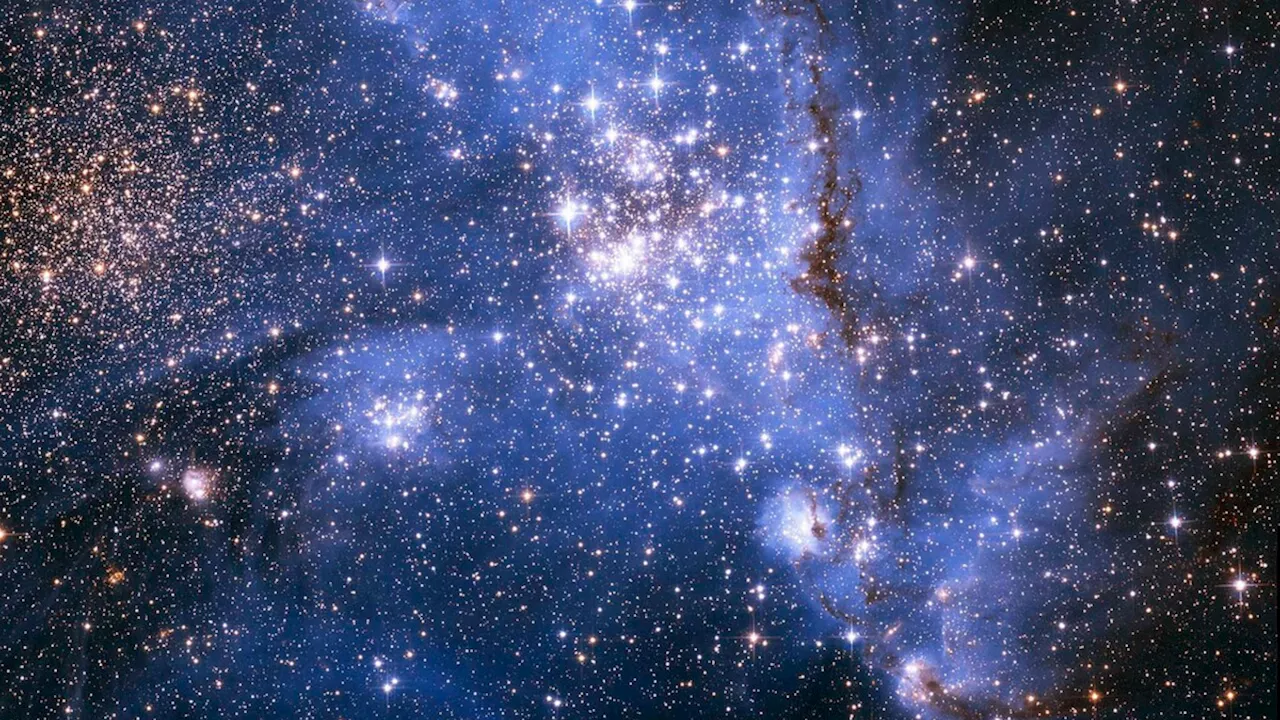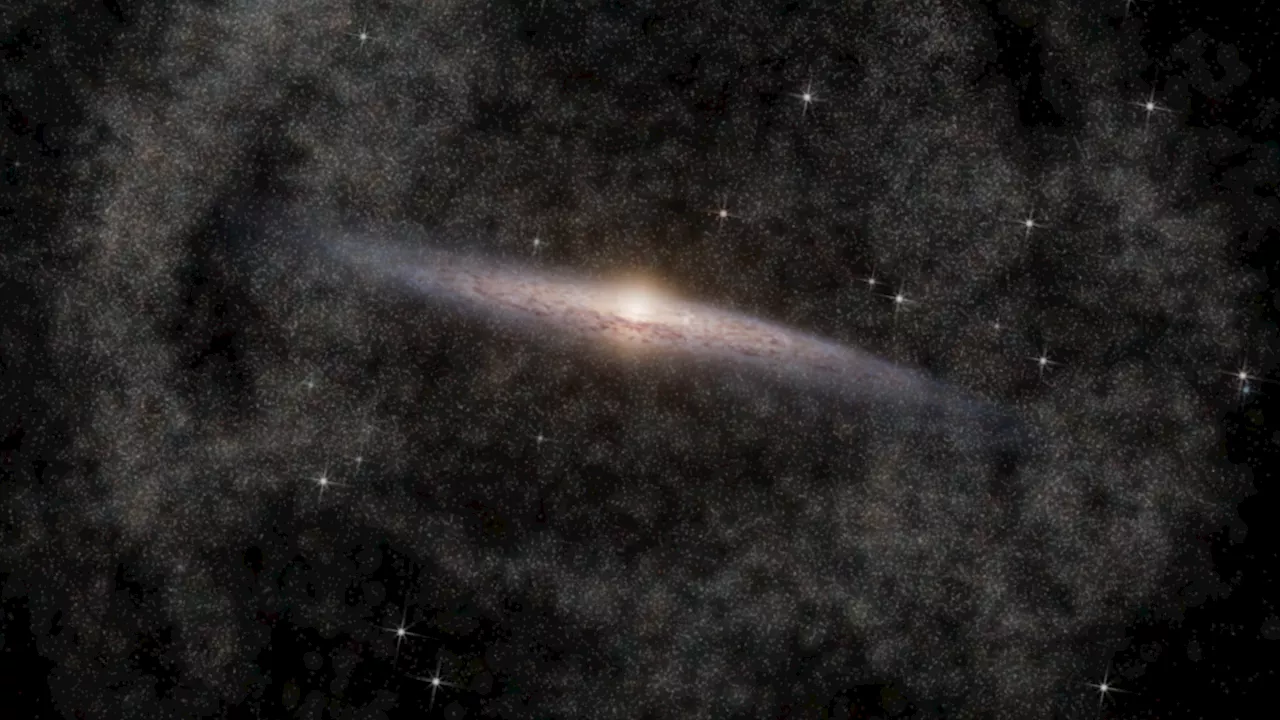Robert Lea is a science journalist in the U.K. whose articles have been published in Physics World, New Scientist, Astronomy Magazine, All About Space, Newsweek and ZME Science. He also writes about science communication for Elsevier and the European Journal of Physics. Rob holds a bachelor of science degree in physics and astronomy from the U.K.
The Milky Way and its halo of stars, many of which have been cannabalised via collisions with other galaxies
These galactic wrinkles were only discovered by Gaia in 2018; this marks the first time they have been extensively researched to reveal the timing of the collision that created them.The halo of our galaxy is populated with stars that have strange orbits, with many of these believed to be the"leftovers" of galaxies the Milky Way once devoured.
"This result — that a large portion of the Milky Way only joined us within the last few billion years — is a big change from what astronomers thought up until now," Donlon said."Many popular models and ideas about how the Milky Way grows would expect a recent head-on collision with a dwarf galaxy of this mass to be very rare.
Canada Latest News, Canada Headlines
Similar News:You can also read news stories similar to this one that we have collected from other news sources.
 Gaia: Milky Way's last major collision was surprisingly recentOur galaxy has collided with many others in its lifetime. ESA's Gaia space telescope now reveals that the most recent of these crashes took place billions of years later than we thought.
Gaia: Milky Way's last major collision was surprisingly recentOur galaxy has collided with many others in its lifetime. ESA's Gaia space telescope now reveals that the most recent of these crashes took place billions of years later than we thought.
Read more »
 Recent Cosmic Collision Shakes Up Milky Way HistoryThe last galactic fling was billions of years later than previously thought, indicating our galaxy may have more surprises in store.
Recent Cosmic Collision Shakes Up Milky Way HistoryThe last galactic fling was billions of years later than previously thought, indicating our galaxy may have more surprises in store.
Read more »
 Researchers upend theory about the formation of the Milky Way GalaxyResearch reveals a shocking discovery about the history of our universe: the Milky Way Galaxy's last major collision occurred billions of years later than previously thought.
Researchers upend theory about the formation of the Milky Way GalaxyResearch reveals a shocking discovery about the history of our universe: the Milky Way Galaxy's last major collision occurred billions of years later than previously thought.
Read more »
 10 'breathtaking' photos of our galaxy from the 2024 Milky Way Photographer of the Year contestElise studied marine biology at the University of Portsmouth in the U.K. She has worked as a freelance journalist focusing on the aquatic realm. Elise is working with Live Science through Future Academy, a program to train future journalists on best practices in the field.
10 'breathtaking' photos of our galaxy from the 2024 Milky Way Photographer of the Year contestElise studied marine biology at the University of Portsmouth in the U.K. She has worked as a freelance journalist focusing on the aquatic realm. Elise is working with Live Science through Future Academy, a program to train future journalists on best practices in the field.
Read more »
 Hot Gas is Being Vented Away from the Center of the Milky WaySpace and astronomy news
Hot Gas is Being Vented Away from the Center of the Milky WaySpace and astronomy news
Read more »
 Massive, magnetic stars beyond the Milky Way detected for the 1st timeRobert Lea is a science journalist in the U.K. whose articles have been published in Physics World, New Scientist, Astronomy Magazine, All About Space, Newsweek and ZME Science. He also writes about science communication for Elsevier and the European Journal of Physics. Rob holds a bachelor of science degree in physics and astronomy from the U.K.
Massive, magnetic stars beyond the Milky Way detected for the 1st timeRobert Lea is a science journalist in the U.K. whose articles have been published in Physics World, New Scientist, Astronomy Magazine, All About Space, Newsweek and ZME Science. He also writes about science communication for Elsevier and the European Journal of Physics. Rob holds a bachelor of science degree in physics and astronomy from the U.K.
Read more »
